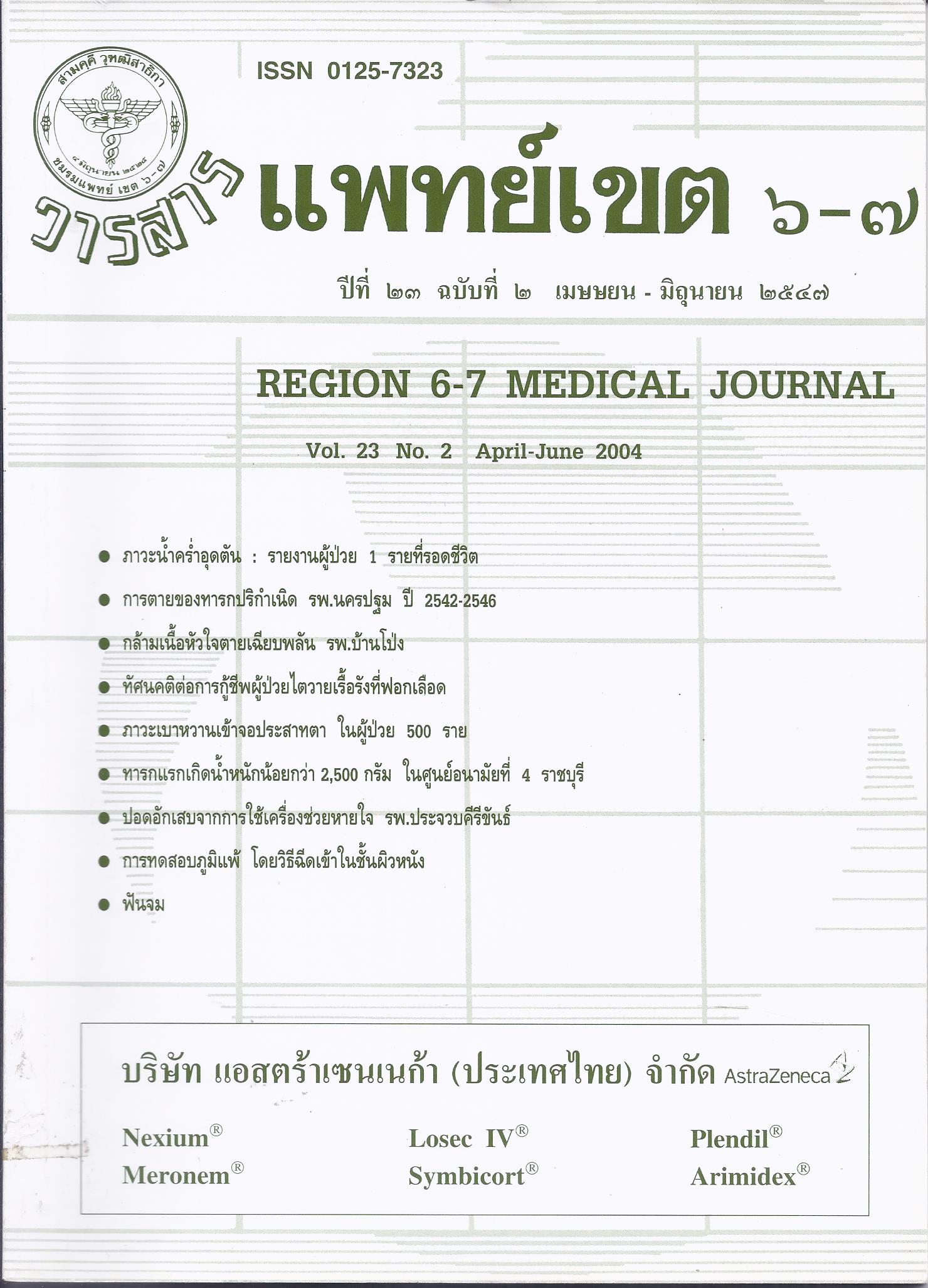ทัศนคติต่อการกู้ชีพในผู้ป่วยไตวายเรื้อรังที่ได้รับการฟอกเลือด
บทคัดย่อ
The most serious complication in hemodialysis procedure is cardiac arrest that patient should has cardiopulmonary resuscitation. ln Thailand dialysis units have a policy of performing cardiopulmonary resuscitation(CPR) on all patients who experience cardiac arrest while undergoing dialysis. However to perform CPR on patients who do not want it is contrary to ethics and law. We intenriewed hemodialysis patients in 3 units in Nakhonpathom province, Thailand to learn their attitudes about CPR. B2 patients agreed to be interviewed. Forty patients (48.8%) wanted to undergo CPR if cardiac arrest were to occur while undergoing dialysis. Compared with patient who wanted CPR, those who did not want CPR had more depression (66.7% versus 35% ; P = 0.004), feel worse quality of life (52.4 versus 12.5 ; P: 0.001), but want kidney transplant less than another group (45.2 versus 77.5 ; P = 0.003). We conclude that about tilt, percent patients did not want CPR. Dialysis units need to do a better job of identifying patients who prefer not to be resuscitated and respecting their wishes in the event of cardiac arrest while undergoing dialysis. Most importantly, nephrologist and dialysis unit staff need to educate dialysis patients about the poor outcomes with CPR so that dialysis patients decision about CPR will future inform.
ดาวน์โหลด
เผยแพร่แล้ว
รูปแบบการอ้างอิง
ฉบับ
ประเภทบทความ
สัญญาอนุญาต
ลิขสิทธิ์บทความเป็นของผู้เขียนบทความ แต่หากผลงานของท่านได้รับการพิจารณาตีพิมพ์ลงวารสารแพทย์เขต 4-5 จะคงไว้ซึ่งสิทธิ์ในการตีพิมพ์ครั้งแรกด้วยเหตุที่บทความจะปรากฎในวารสารที่เข้าถึงได้ จึงอนุญาตให้นำบทความในวารสารไปใช้ประโยชน์ได้ในเชิงวิชาการโดยจำเป็นต้องมีการอ้างอิงถึงชื่อวารสารอย่างถูกต้อง แต่ไม่อนุญาตให้นำไปใช้ในเชิงพาณิชย์




